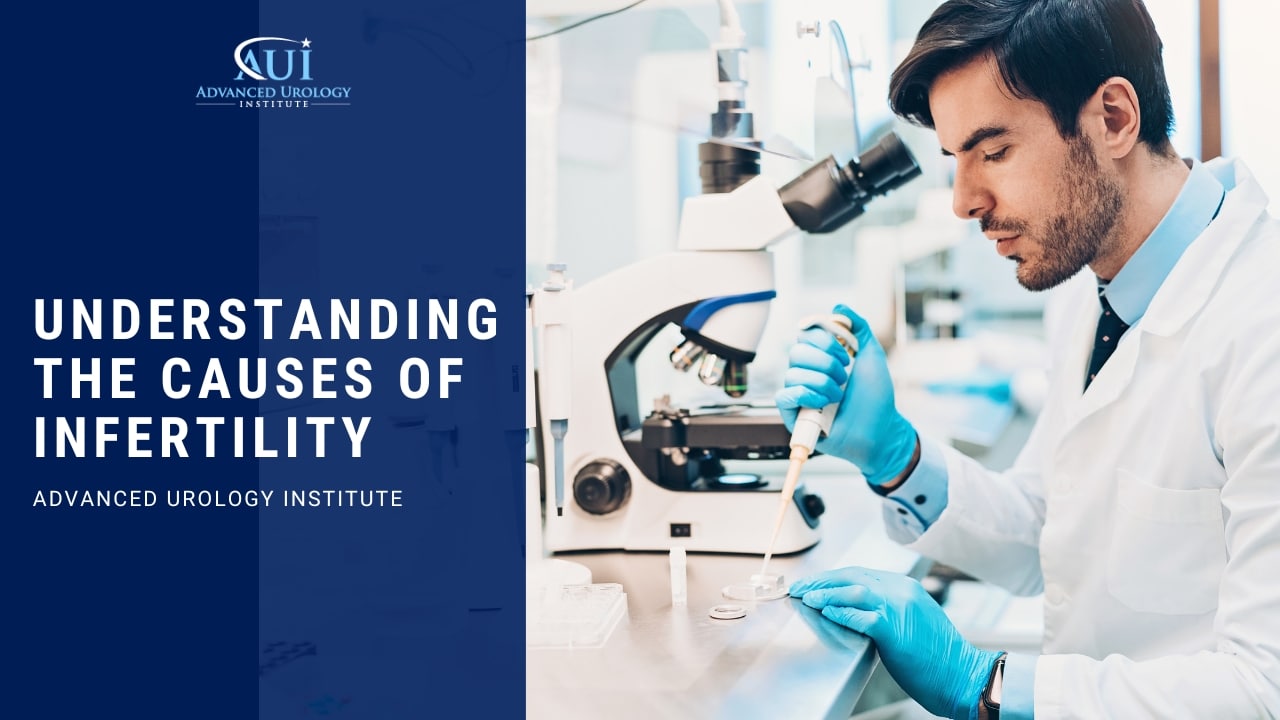 Infertility can be a frustrating and emotionally challenging experience for couples trying to conceive. As a man, you may be considered infertile if you’ve been trying to have a child for one year or longer with frequent, unprotected sexual intercourse. However, it’s important to note that infertility is not solely a male issue. In roughly 40% of cases, it can be due to the female partner, owing to issues such as ovarian obstruction, failure of ova to mature (anovulation), or a very low or high supply of eggs. Another 20% of failures are due to a combination of male and female factors. The remaining 40% is attributed to male infertility, usually characterized by low sperm count, poor quality sperm, or a blockage that prevents the delivery of sperm.
Infertility can be a frustrating and emotionally challenging experience for couples trying to conceive. As a man, you may be considered infertile if you’ve been trying to have a child for one year or longer with frequent, unprotected sexual intercourse. However, it’s important to note that infertility is not solely a male issue. In roughly 40% of cases, it can be due to the female partner, owing to issues such as ovarian obstruction, failure of ova to mature (anovulation), or a very low or high supply of eggs. Another 20% of failures are due to a combination of male and female factors. The remaining 40% is attributed to male infertility, usually characterized by low sperm count, poor quality sperm, or a blockage that prevents the delivery of sperm.
To have a successful pregnancy, it’s essential for a man to:
- Produce healthy sperm: This occurs when the male reproductive organs grow and form normally during puberty, ensuring that at least one testicle is functioning correctly. Additionally, the body needs to secrete enough testosterone and other hormones that trigger and maintain sperm production.
- Make enough sperm: The chances of a pregnancy increase with a higher number of sperm in the semen. However, with a lower sperm count, the chances of one sperm fertilizing the egg reduce significantly. By definition, a low sperm count means having fewer than 15 million sperm per milliliter of semen or fewer than 39 million sperm per ejaculate.
- Produce motile, functional sperm: The motility of sperm determines if they reach the egg for fertilization. Sperm that can’t move or are damaged will not cause a pregnancy.
- Have a clear pathway for sperm: Sperm produced in the testicles are carried in delicate tubes to mix with semen and be ejaculated out of the penis. If there is an obstruction along their path, the sperm are stopped, and they don’t form part of the ejaculate, hence, no pregnancy.
The causes of male infertility can be attributed to health problems, environmental factors, or lifestyle choices. Some examples include:
Health Issues:
- Varicocele: A reversible condition where the veins that drain the testicles swell. The exact cause of male infertility is unknown, but it is believed that a varicocele leads to abnormal blood flow, resulting in reduced sperm quantity and quality.
- Undescended testicles: During fetal development, one or both testicles may fail to descend from the abdomen into the scrotal sac. If not treated, this condition increases the risk of male infertility.
- Celiac disease: A digestive disorder characterized by sensitivity to gluten, a protein found in wheat. The disease can cause male infertility, but the infertility improves after adopting a gluten-free diet.
- Tumors: Malignant and benign tumors of the male reproductive organs can cause infertility. For instance, a tumor can adversely affect the release of hormones involved in sperm production and maturation. Equally, treatments for tumors, including radiation, surgery, and chemotherapy, tend to impair male fertility.
- Chromosomal defects: Various inherited disorders, such as cystic fibrosis, Kallmann’s syndrome, and Klinefelter’s syndrome can cause male infertility. In Klinefelter’s syndrome, a male is born with two X chromosomes and one Y chromosome, instead of one X and one Y, resulting in abnormal development of male reproductive organs.
- Infections: Certain infections can interfere with sperm production, health, and transport. For instance, orchitis (inflammation of the testicles), epididymitis (inflammation of the epididymis), and some sexually transmitted infections, like HIV or gonorrhea, can lower sperm count and quality. Additionally, some infections can cause permanent testicular damage.
- Blockage of sperm: A blockage in the ducts that carry sperm can prevent sperm from being ejaculated, leading to infertility. This blockage can be caused by an injury, surgery, or an abnormal development of the ducts.
It’s important to note that the causes of infertility can be complex and may require a thorough examination by a specialist to identify the root cause. Also, there are various treatments and assisted reproductive technologies available to help couples overcome infertility.





